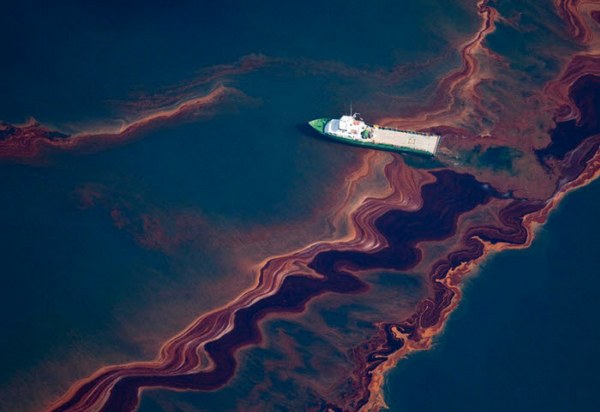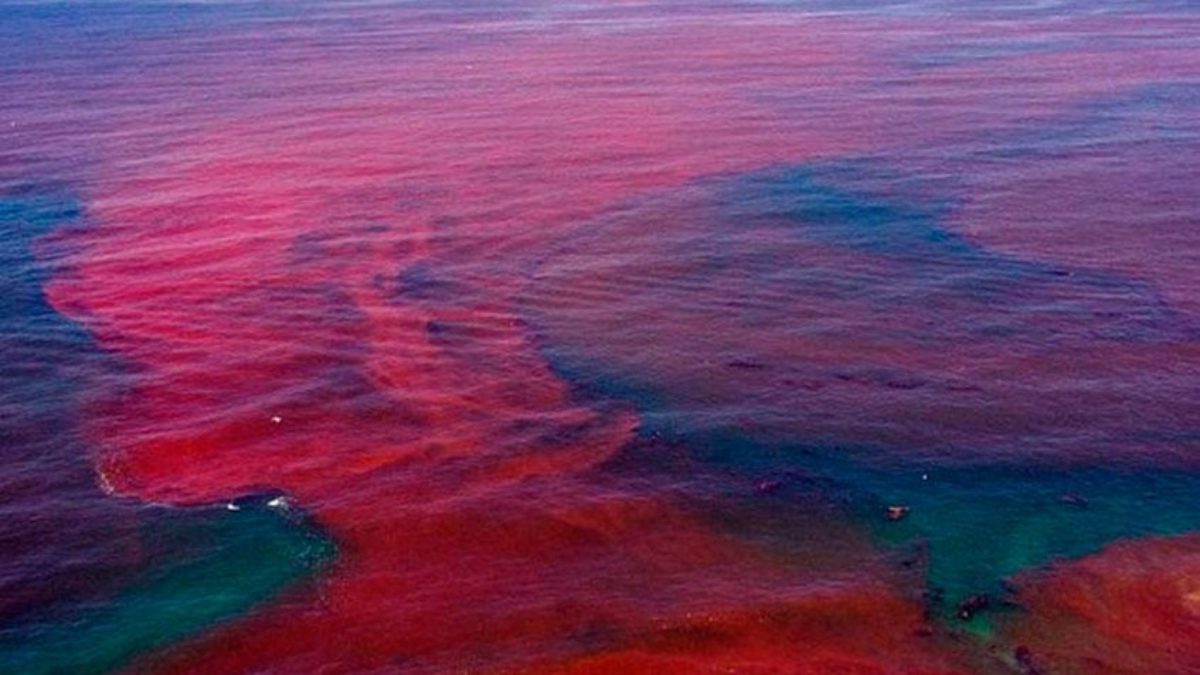![]()
![]()
The most harmful pollutants in the world's oceans include oil and oil products, which account for 5 to 10 million tons a year, mainly as a result of losses in oil production from offshore fields, tanker accidents, coastal runoff, and so on. Thus, as a result of the accident of the tanker "Exxon Valdiz", which occurred in 1990 near Alaska, 40 thousand tons of oil fell into the sea. Huge oil slicks were blown away by sea currents and winds away from the crash site, polluting large areas of the coast, killing thousands of seals, seabirds, fish and more. And in 1991, as a result of the war between Kuwait and Iraq (known as Operation Desert Storm), oil from blown-up tankers and pipelines covered 1,550 km of the Persian Gulf and 450 km of coastline, killing large numbers of sea turtles, dugongs and birds. crabs and other animals. Oil film on the sea surface inhibits the activity of marine phytoplankton, which is one of the main suppliers of oxygen to the Earth's atmosphere, disrupts heat and moisture exchange between the ocean and the atmosphere, destroys fish fry and other marine organisms.
A lot of pollution enters the oceans and the atmosphere: 200 thousand tons of lead, 1 million tons of hydrocarbons, 5 thousand tons of mercury and more. About a third of the mineral fertilizers applied to the soil are washed out of it by rainwater and carried away by rivers into the seas and oceans; nitrogen and phosphorus alone enter the world's oceans in this way about 62 million tons per year. These substances cause the rapid development of some unicellular algae, which has repeatedly caused the so-called "red tides" (although the color of the water is both yellow and blue-green, depending on the type of algae). In "fed" with nitrates and phosphates sea water, these plants reproduce extremely quickly, forming in some places on the surface of the water giant "blankets" up to 2 m thick and an area of many square kilometers. This blanket acts as a press that suffocates all living things in the sea. When they die, the algae sink to the bottom, where they begin to rot, absorbing all the oxygen from the water. This causes the death of benthic organisms.
The consequences of humanity's wasteful, careless attitude toward the ocean are appalling. The destruction of plankton, fish and other inhabitants of ocean waters - not all. The damage can be much greater. After all, the oceans have a universal function: it is a powerful regulator of moisture and heat regime of the Earth, as well as the circulation of its atmosphere. Pollution can cause significant changes in all these characteristics, which are vital for the climate and weather on the planet. Symptoms of such changes are already observed today. Violent droughts and floods are repeated, destructive hurricanes appear, the strongest frosts come even in the tropics, where they were not born. Of course, it is not yet possible to estimate the dependence of such damage on the degree of pollution. The world's oceans, however, certainly have a connection. Be that as it may, the protection of the ocean is one of the global problems of mankind. The Dead Ocean is a dead planet, and so is all of humanity !!!
Researchers at the National Center for Environmental Analysis and Synthesis (NCEAS) have found that 60% of the world's oceans are polluted by human influences. the total human impact on the ocean has almost doubled. It could double again over the next decade if the pollution process is not stopped.

